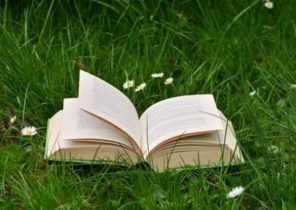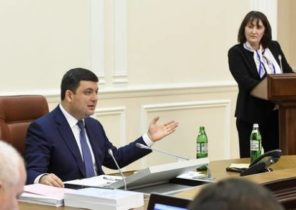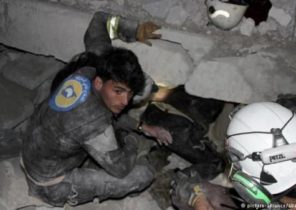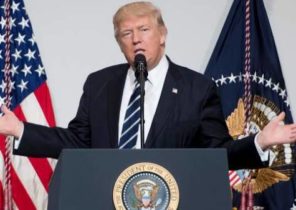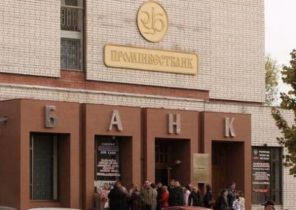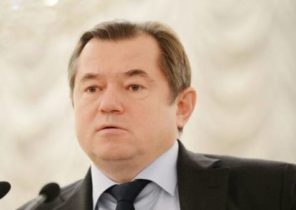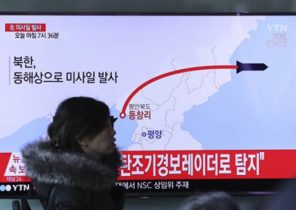A seemingly insignificant incident — the absence of the Russian menu in “McDonald’s” — has caused a sharp reaction of some of our Russian-speaking fellow citizens, this fact even saw “discrimination” throughout their community and a violation of her rights. Came to threats of a boycott of the network and even use of weapons if Russian-speaking citizens in Ukraine and will continue to be so “demeaning”.
The biggest fear for some Russian-speaking is that Ukraine will make “minority”, and this for them is absolutely unacceptable. Is the fear that they will be “forced” to speak Ukrainian.
All these ambitious statements and threats — not that other, as a typical manifestation of so-called post-Imperial syndrome — the mental state of the ruling in the “Union republics” of the former USSR Russian language scoop, which after the collapse of the “evil Empire” was facing the threat of losing their privileged social status and transition to the status of national minorities in the new national States formed on the ruins of “country of advice”.
The scoop is unacceptable and intolerable situation when he is forced to show respect to the natives, who used to despise, — and worst of all — to teach them the state language, and even use it in the performance of professional or official duties!
However, the wheel of history (and its privileges in the USSR), they never turn back. And, like it or not, and have to adapt to new circumstances.
The concept of “Russian-speaking” brings together different categories of citizens of Ukraine, for which it is possible to predict the various behaviors in a situation that has developed in our country since the adoption of the status of the Ukrainian language as the only state.
The most numerous group among the Russian-speaking population are ethnic Ukrainians, with Ukrainian roots, but due to the policy of Russification, which was held in Ukraine for over three hundred years, until independence, and inertia, to a large extent, continues today, especially in the South-Eastern regions of the state. These ethnic Ukrainians in the first or second or third generation switched to Russian language. Some of them communicate in Russian only in public places, at work and at home with their parents use their native language. The vast majority of them consider themselves Ukrainians, has retained the ancestral and historical memory, identificeret themselves with Ukraine as their homeland and the homeland of their ancestors.
Speaking the Russian language, they were nevertheless sympathetic to the processes of revival of the Ukrainian language and culture, actively participate in political processes. Many of them stood on the Maidan against the Yanukovych regime, and now are fighting the occupier in the Donbass. We can predict that in the future they will increasingly take in the Ukrainian culture, get rid of the “shame” for native language and will go to him in daily conversation. If not they, then their children — that’s for sure.
However, some of the ethnic Ukrainians have become so Russified that he had forgotten their ancestral roots, or despise them, renouncing the language of their ancestors, native language is Russian (or Ukrainian, and Russian), and Russian or “Soviet” man without a nationality. This group of the population of Ukraine in terms of its identity is closer to an ethnic Russian with whom it can be attributed to the Russian national minority in Ukraine.
Ethnic Russians began to settle on the Ukrainian ethnic territory in the second half of the eighteenth century as landowners, officials, soldiers, serfs. In the nineteenth and twentieth centuries, their number has been rapidly increasing due to industrial development, especially in the South-East region. During the famine a large number of Russians centrally transported to Ukraine entire villages and settled in the empty houses of the extinct residents. The same story was repeated with the population of the Russian Crimea after the complete deportation of the Crimean Tatars from there in 1944.
In the postwar period intense, a policy mix of the population of the Soviet Union when experts from various professions, the military, the retirees moved for permanent residence to Ukraine, and Ukrainians were sent to work and serve in Kazakhstan or the far East.
Gradually, Russian language replaced as margins (deep hopeless peripherals — approx. transl.) Ukrainian language in the major cities (except Western Ukrainian regional centers), the Russians were exempt from compulsory study of the Ukrainian language and literature in secondary schools. Any activity of the patriots for the development of national culture was regarded as a manifestation of bourgeois nationalism and, on the contrary, the study of Russian language and culture were encouraged. In particular, in the last years of the Soviet regime Russian language in the schools studied five times a week, a Ukrainian or two.
Consequently, Russian in Ukraine, as in other national republics of the former Soviet Union, felt privileged caste, seeing the locals, especially the Ukrainian language as inferior people — “farmers”, “raguli”, “kugutov” and the like.
In our time, in connection with the situation in the rise of national consciousness of Ukrainians the best option for Russian-speaking citizens would be to accept the new realities of life in Ukraine, to agree with his state of the minorities to learn the language and become full citizens of the newly formed state, while retaining their national identity if they wish to.
A great example for all Russian speakers in Ukraine could serve as examples of selfless service to the Ukrainian nation pole Vyacheslav Lipinski, Crimean Tatar Crimean Agafangel, Russian Nikolay fitileva (Wave), a Jew of Moses Fishbein, who were able fully to identify with the Ukrainian nation, to take it as his own.
The same need to move on is tested for centuries Ukrainian language and help him to stand on his feet on the earth needs our well-known contemporaries — the writer and filmmaker, Kremlin prisoner Oleg Sentsov, a philosopher Serhiy Datsyuk, actor and songwriter Anton mukharsky, born in Russian speaking families and regions: Sentsov, in Simferopol, Datsyuk — Donetsk, mukharsky — in Kiev.
Now tens of thousands of Russian-speaking Ukrainians in various courses and self study of the Ukrainian language, moving EN masse to him in the daily communication in families, among friends, at work and in public places.
However, some particularly ambitious Russian citizens chooses a different path — he started to urge the government of the national state status for the Russian language, that is, the right not to know and not to use the language of the titular nation.
This approach is ahistorical and therefore, it is absolutely unpromising, and confirms that the practice of nation-building in the republics of the former USSR, none of them, except Belarus, Russian language has not received the status of the second state. The feasibility of such a policy confirmed by the experience of Belarus where the language of the indigenous population is on the verge of extinction: in everyday life it’s spoken by not more than ten percent of the citizens of the Republic.
According to a recent poll, only fifteen percent of the citizens of Ukraine want granting the Russian language second state, and almost sixty-nine percent in favor of the Ukrainian language as the only state. Therefore, logical and reasonable is the course taken by the previous government in a comprehensive and prioritized the development of Ukrainian as the state language. The new government under the leadership of Vladimir Zelensky, it seems, has the intention to continue this policy, as evidenced by the statement of the Secretary of national security and defense Council Aleksey Danilov, the only state language will remain Ukrainian language only.
This approach is historically justified, logical and appropriate.
Those Russian citizens who are afraid of the transition to the status of national minorities, are invited to stay another month in Western Ukraine, and all fears will vanish like the morning mist.
Here a full-fledged functioning of the Ukrainian language in all spheres of life in rural areas and in regional centres in Lviv, Ivano-Frankivsk, Ternopil, Lutsk, Rivne, Chernivtsi, Uzhgorod. All educational institutions — from kindergartens to universities — are in Ukrainian, except for a small number of primary and secondary schools for national minorities; authorities, or law enforcement, the military, medicine, all services, business, arts, sports, work exclusively in the Ukrainian language, that is, everything happens as in a normal civilized nation state.
Children of Russian-speaking the vast majority of learning in Ukrainian secondary and higher educational institutions of the region and are fluent in the Ukrainian language, which easily and naturally communicate. Russians in Western Ukraine are the usual minority and don’t make it no problem. Those who are concerned about preserving its own national identity, send their children to Russian schools, which, in particular, in Lviv, there are a few. There is a Society of Russian culture named after A. S. Pushkin, the Church of the UOC-MP.
In Lviv and other cities of Western Ukraine there are many Russian-speaking people, mainly elderly, who are over 50-60 years of life among the local population was never able to master Ukrainian language and communicate in public places for the only language that I know, — asscom. Say to them in Ukrainian, they understand, and nobody makes an issue of it, no one does not occur to force these people to speak the Ukrainian language. So, in Western Ukraine, ethnic Russians are in the status of a national minority, feel in it absolutely comfortably, without experiencing any harassment or humiliation on the grounds of national or religious intolerance. And when Russian-speaking (for now) residents with Ukrainian roots in our capital, in the regional centres of right-Bank and left-Bank Ukraine, in the South-East will acquire an appropriate level of national consciousness (and it can happen after five to ten years!), then ethnic Russians living in our country will feel comfortable on the territory of Ukraine without pushing is detrimental to the country’s requirements of giving the Russian language a state status. It will be like the current Western Ukraine, it’s Ukraine!
There is no need to give official status to the Russian language because all Russian-speaking citizens in Ukraine study it in high school, it is absolutely clear, and closely related, “brotherly”, as they said in Soviet times, the East Slavic language. Therefore, the claims of some individuals regarding granting the Russian language a state status due solely to their Imperial arrogance, the unwillingness to part with the privileged position of Russian in Ukrainian society, exaggerated ambitions.
If you are closer to Russian culture, develop it — to do this, Ukraine has all opportunities. But, respect the language of the people, who kept this fertile land for their descendants and all those who will live in it, who gave it the name who have carried through the centuries and permanent foreign occupation and its culture.
